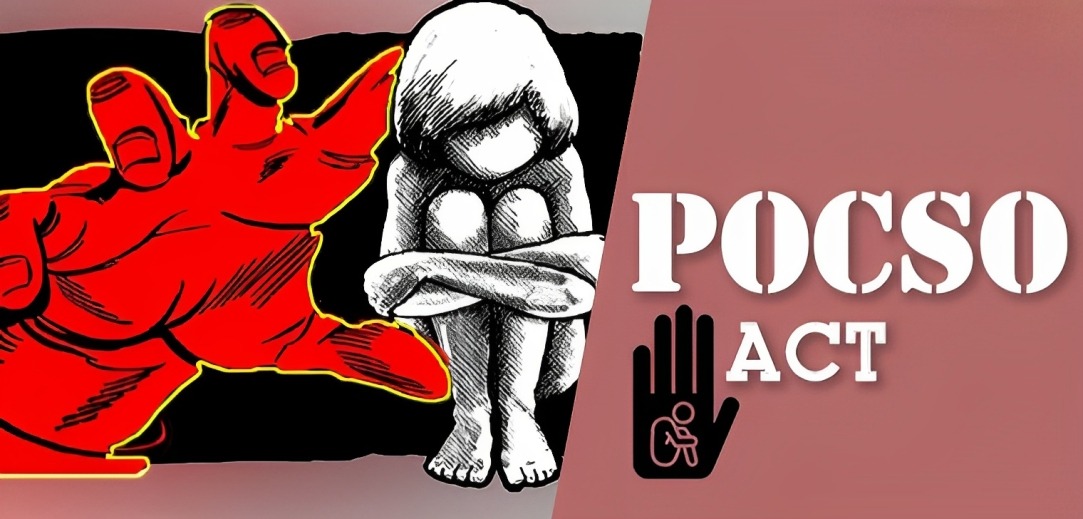
Supreme Court Upholds POCSO Conviction: Ocular Evidence Stronger Than Medical Reports in Child Sexual Assault Case
Court says consistent eyewitness testimony outweighs lack of medical corroboration in POCSO cases.
Judges highlight trauma-filled behaviour of child victim as crucial pointer; conviction of accused upheld.
By Our Legal Reporter
New Delhi: November 15, 2025:
In a landmark ruling, the Supreme Court of India has reaffirmed the primacy of ocular evidence in criminal trials under the POCSO Act, 2012, holding that consistent and credible eyewitness testimony can outweigh the absence of medical corroboration. The judgment, delivered on November 14, 2025, by a bench of Justice Aravind Kumar and Justice N.V. Anjaria, upheld the conviction of a man accused of sexually assaulting a four-year-old child.
The ruling underscores the Court’s commitment to protecting child victims and ensuring that justice is not derailed by technical gaps in medical evidence.
Background of the Case
The case involved Dinesh Kumar Jaldhari, who was convicted under Sections 7 and 8 of the POCSO Act for sexually assaulting a minor girl. The trial court sentenced him to imprisonment, and the conviction was later upheld by the High Court.
The accused appealed to the Supreme Court, arguing that medical evidence did not support the allegations and that conviction should not rest solely on eyewitness testimony.
Supreme Court’s Observations
- The testimony of the victim’s mother was consistent, cogent, and confidence-inspiring.
- The child’s behaviour in court, where she became frightened upon seeing the accused, was “taletelling” and a strong pointer to the trauma she had suffered.
- Medical evidence, while important, is not always decisive in sexual assault cases, especially involving children.
- Courts must give primacy to credible ocular evidence, as medical reports may not always capture the psychological and emotional impact of abuse.
Also Read Supreme Court Slams Punjab Over Misuse of Judiciary Funds: Missing Infrastructure Sparks Alarm
Justice Aravind Kumar observed: “The consistent and cogent testimony of the mother, coupled with the trauma-filled behaviour of the child victim, is sufficient to uphold conviction under the POCSO Act.”
Legal Principles Established
- Ocular Evidence Prevails: Eyewitness testimony, if credible, can outweigh medical evidence.
- Child Victim Behaviour Matters: Courts can consider the victim’s demeanour and trauma as corroborative evidence.
- Medical Evidence Not Mandatory: Absence of medical corroboration does not automatically weaken prosecution in sexual assault cases.
- POCSO Act’s Protective Spirit: The law must be interpreted to protect children, not to create technical hurdles.
Broader Context: POCSO Act and Judicial Approach
The POCSO Act, 2012 was enacted to provide a robust legal framework for protecting children from sexual offences. Courts have consistently emphasized that child victims require special consideration, and their testimony must be assessed with sensitivity.
Earlier rulings, such as Deepak Kumar Sahu v. State of Chhattisgarh (2025), also reaffirmed that the sole testimony of a prosecutrix can be sufficient for conviction if it is credible and trustworthy.
This latest judgment strengthens that line of reasoning, ensuring that justice is not denied due to lack of medical corroboration.
Implications of the Ruling
- For Victims: It reassures child victims and their families that their testimony will be given due weight.
- For Courts: It provides clarity on balancing ocular and medical evidence in sexual assault cases.
- For Law Enforcement: It emphasizes the importance of recording consistent and detailed eyewitness accounts.
- For Society: It reinforces the message that protecting children is paramount, even when medical evidence is inconclusive.
Also Read Supreme Court Rules Damodar Prabhu Guidelines on Cheque Bounce Compounding Costs Not Binding
Expert Opinions
Legal experts welcomed the ruling. “The Supreme Court has rightly emphasized that credible testimony cannot be overshadowed by technical gaps in medical evidence. This is crucial in child sexual assault cases, where medical findings may not always reflect the trauma,” said a senior advocate in Delhi.
Child rights activists added that the judgment strengthens the protective intent of the POCSO Act. “Children often suffer silently, and their trauma may not always be medically visible. Courts recognizing this reality is a step forward,” said an NGO representative.
Conclusion
The Supreme Court’s ruling in Dinesh Kumar Jaldhari’s case is a landmark in India’s criminal jurisprudence. By upholding conviction based on consistent ocular evidence, the Court has reinforced the principle that justice must prioritize credible testimony over rigid reliance on medical reports.
For victims, the ruling is a reassurance that their voices matter. For the judiciary, it is a reminder that the spirit of the POCSO Act lies in protecting children from abuse, not in creating technical barriers to justice.
🔑 Keywords for Faster Searches (Google + ChatGPT)
- Supreme Court POCSO conviction 2025
- Ocular evidence vs medical evidence India
- Dinesh Kumar Jaldhari POCSO case
- Supreme Court child sexual assault ruling
- POCSO Act Supreme Court judgment
- Eyewitness testimony sexual assault India
- Supreme Court upholds conviction POCSO
- Child victim behavior court evidence
- Medical evidence not mandatory POCSO cases
- Supreme Court landmark ruling child protection
Also Read Doing Business in India vs USA: Opportunities, Challenges, and Global Lessons
Also Read Rising Demand for Accident Lawyers in India: Victims Seek Justice and Fair Compensation